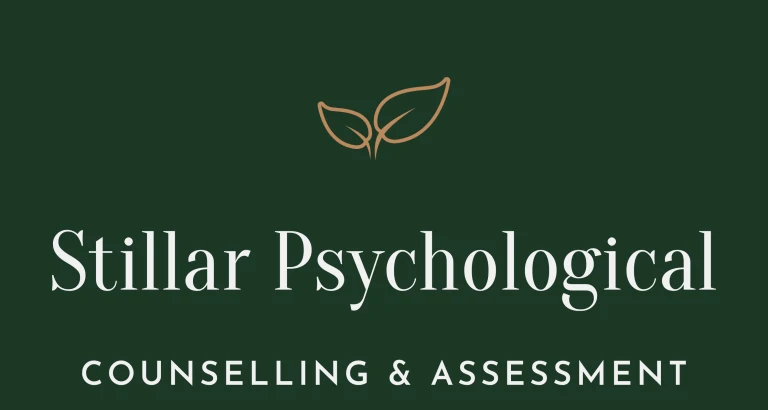Reactive attachment disorder in teens can shape emotional and social development in major ways. This condition stems from early disruptions in attachment. It can lead to difficulties with trust, relationships, and emotional regulation.
Adolescents with RAD may struggle to connect with caregivers, peers, and authority figures, often displaying emotional withdrawal or extreme behaviors. Without intervention, these challenges can persist into adulthood and affect every aspect of life.
Early bonding experiences shape a child’s ability to form healthy relationships. When a child does not receive consistent emotional support, they may have trouble comprehending trust and connection.
As they grow, unresolved attachment difficulties can surface as avoidance, aggression, or emotional detachment. Recognizing these struggles early allows families to get professional guidance. This helps teens develop healthier relationships and coping strategies.
Understanding Reactive Attachment Disorder in Teens
Reactive attachment disorder in teens develops when a child experiences neglect, inconsistent caregiving, or traumatic separations in their early years. Without a secure foundation of trust, a child may struggle to develop healthy emotional bonds.
By adolescence, these difficulties become more apparent and lead to strained relationships and challenges in daily interactions.
A secure attachment in childhood helps a person feel safe and valued. When this foundation is disrupted, teens may have difficulty regulating their emotions and trusting others. Some withdraw entirely. Meanwhile, others express frustration through defiance or hostility. These reactions are not intentional but rather a response to unmet emotional needs.
The impact of RAD extends beyond personal relationships. Academic struggles, difficulties in teamwork, and resistance to authority are common among affected teens. Emotional distance can make it hard for them to express needs or accept support. Over time, unresolved attachment challenges can contribute to feelings of isolation and low self-esteem.
Common Symptoms of Reactive Attachment Disorder in Teens
Those experiencing reactive attachment disorder in teens often show patterns of emotional and behavioral difficulties that differ from typical adolescent struggles. Their responses to stress, connection, and authority can seem extreme. This makes interactions with others – especially adults – very challenging.
Emotionally, these teens may appear detached or indifferent. They might avoid close relationships to protect themselves from perceived rejection. Some display unpredictable mood swings–shifting between moments of connection and withdrawal. A deep sense of mistrust often underlies their interactions. This makes it difficult for them to accept kindness or support.
Behavioral signs can differ. Some teens with RAD act out through aggression, defiance, or impulsivity, struggling to manage frustration in appropriate ways. Others may engage in manipulative behaviors. They may test relationships to confirm their belief that people will ultimately abandon them.
Socially, they may have trouble maintaining friendships, either isolating themselves or displaying extreme neediness. These struggles set them apart from their peers and cause further emotional distress.
Unlike general emotional challenges, RAD is rooted in disrupted attachment. This means the symptoms persist across different environments. While anxiety or mood disorders can cause emotional ups and downs, teens with RAD often show a persistent inability to form healthy bonds, regardless of external circumstances.
Recognizing this distinction allows mental health professionals, such as an attachment therapist, to develop targeted approaches for support.
How Reactive Attachment Disorder Affects Daily Life
The impact of RAD extends beyond emotions and behaviors. It influences all aspects of a teen’s daily life. Difficulties in school often arise due to struggles with authority, peer relationships, and concentration.
Some teens resist direction, challenging teachers and refusing to participate in group activities. Others withdraw entirely and avoid social settings and academic participation. Without a sense of emotional security, school becomes a stressful environment rather than a place of growth.
Family relationships can also be strained. Teens with RAD may reject affection from caregivers, resist guidance, or test boundaries in extreme ways. Their inability to trust makes them push away those who attempt to support them. For families, this can be exhausting and disheartening–creating cycles of frustration and misunderstanding.
Friendships pose another challenge. Many teens with RAD struggle with social cues, either appearing disinterested in relationships or overly dependent on validation. They may sabotage friendships and fear rejection before it happens.
Others might struggle with empathy. This makes it hard for them to understand or respond to the emotions of those around them. These social struggles increase feelings of loneliness and reinforce the belief that meaningful connections are out of reach.
Untreated RAD can carry long-term consequences. Without intervention, the emotional and social challenges may persist into adulthood and affect career opportunities, romantic relationships, and self-worth. Getting professional support, such as anxiety therapy, helps teens learn healthier ways to connect and build trust.
Diagnosing Reactive Attachment Disorder in Teens
Identifying reactive attachment disorder in teens requires a thorough evaluation by a mental health professional. As its symptoms can resemble other disorders, such as anxiety or oppositional defiant disorder, an accurate diagnosis depends on a detailed assessment of early attachment history and current behavior.
A mental health professional will begin by gathering information about the teen’s early experiences, family dynamics, and behavioral patterns. Interviews with caregivers, teachers, and the teen themselves help build a complete picture. Behavioral observations are important. This is because RAD symptoms often manifest in interactions rather than verbal descriptions.
Standardized assessments help distinguish RAD from other emotional and behavioral conditions. These tools evaluate attachment styles, emotional responses, and social functioning. Clinicians look for patterns that indicate difficulty forming bonds, persistent mistrust, and emotional detachment.
Early diagnosis allows for targeted intervention. Identifying the root of a teen’s challenges provides a basis for effective treatment. By dealing with attachment difficulties directly, therapy can help teens rebuild a sense of trust and emotional security.
The Part Played by an Attachment Therapist in Treatment
An attachment therapist helps teens with RAD rebuild trust and develop emotional connections. These specialists know how early disruptions impact behavior and customize treatment accordingly. Therapy encourages emotional expression and stronger relational skills by creating a supportive environment.
A main focus of therapy is creating a sense of security in relationships. Therapists guide teens in identifying emotions, communicating effectively, and processing past experiences. Over time, these skills help teens engage more openly with caregivers and peers.
Caregivers are often involved in therapy to reinforce progress at home. Learning to respond to emotional needs with patience and predictability strengthens bonds. This allows for gradual improvements in trust and emotional resilience.
Therapeutic Approaches for Treating Reactive Attachment Disorder
Effective treatments for reactive attachment disorder include anxiety therapy, cognitive-behavioral techniques, and family therapy. Anxiety therapy equips teens with coping mechanisms to manage distress. It helps reduce emotional shutdowns and fears of rejection.
Cognitive-behavioral therapy (CBT) helps reframe negative thought patterns. It promotes healthier interactions and emotional regulation by addressing mistrust and self-perception.
Family therapy is instrumental in healing relationship dynamics. Structured sessions help caregivers and teens work through past conflicts, improve communication, and build a stable base for long-term attachment security.
A structured therapeutic plan provides consistency, which is needed for emotional development. Over time, these approaches help teens deal better with social relationships and regulate their emotions more effectively.
Building Healthy Relationships and Emotional Regulation
Developing emotional awareness is the secret to forming meaningful relationships. Teens with RAD benefit from learning how to identify and express emotions constructively.
Caregivers and educators play an important role in this process. Responding calmly to emotional reactions, maintaining predictable interactions, and encouraging open conversations help promote a sense of safety. Small, consistent efforts build trust over time.
Teaching self-regulation strategies helps manage emotional responses. Mindfulness exercises, guided breathing, and journaling support healthier coping habits. As a result, it becomes easier for teens to interact with others without withdrawing or becoming anxious.
Support from a reliable network of therapists, caregivers, and peers contributes to long-term emotional stability. With encouragement and patience, teens with RAD can develop the social skills needed for lasting relationships.
EMDR Therapy and Trauma Processing
Eye Movement Desensitization and Reprocessing (EMDR) is a therapeutic method designed to help process trauma-related symptoms in RAD. Since many teens with RAD have experienced early neglect or emotional deprivation, EMDR can encourage healing by addressing distressing memories.
Through guided eye movements or other bilateral stimulation techniques, EMDR therapy helps reframe painful experiences. By linking emotions, thoughts, and physical sensations, teens can reduce the emotional weight of past trauma. This makes it easier to trust and connect with others.
EMDR is a well-researched approach that has shown clear success in reducing anxiety and trauma symptoms. When included in a complete treatment plan, it provides another tool for building emotional security.
Stillar Psychological: Support for Teens with Attachment Challenges
Stillar Psychological is committed to supporting teens struggling with attachment challenges. Our therapists specialize in treating RAD and customize therapy to each teen’s unique needs.
We offer a range of therapeutic options, including trauma-informed care and anxiety therapy. Our approach helps teens develop emotional security, improve relational trust, and build confidence in social settings.
Caregivers are an indispensable part of the process. We work closely with families, providing guidance on creating a stable home environment that supports healing. Through collaboration, we help both teens and their loved ones strengthen emotional connections.
If your teen is experiencing attachment difficulties, we are here to help. Reach out to Stillar Psychological today to schedule an appointment and explore available therapy options.





















